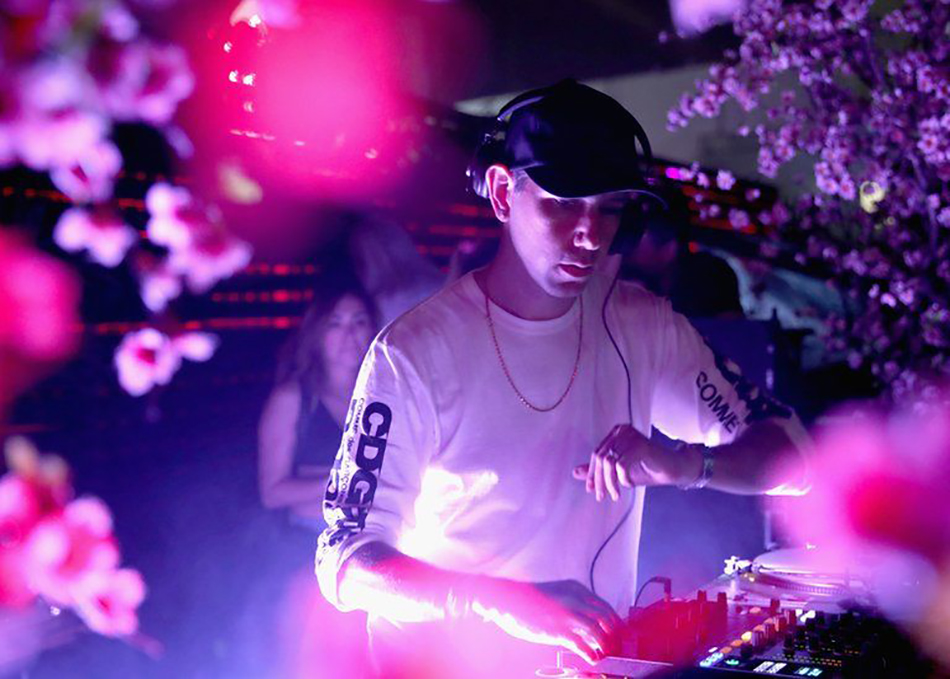Tiga. DJ. Entrepreneur.
running a creative enterprise

the harvest: via vice
My name’s Tiga, and I’m a musician, DJ, producer and businessman. I grew up in Montreal and in India.
Basically, my parents travelled a lot … and back then, in the 70s and 80s, it was a different world … I met all kinds of crazy people. I was exposed to nightlife very early. There were parties going on like raves—they weren’t called raves then—but there were parties going on all the time in Goa [India], and I would go to the parties and see them in the morning. That became an influence although, obviously, I didn’t see it at the time.
I just loved music. I loved finding good music, playing it for my friends and making cassettes. I would listen to music every night. Music was the soundtrack to my dreams, my ambitions, my big plans, my schemes. It was a big part of my life. My father was a DJ, as well, in India. He was one of a group of guys that would buy records put them onto cassette, play the tapes at these all night parties. Even when I was really young, I would help my dad, I would make the tapes for him. It’s still my favourite place in the world, Goa. […]
I don’t know if everyone has these tensions in them, like two sides of yourself that are always fighting. For me those two sides are very much epitomised by India and the West. On the one hand it’s more about experience, freedom and then on the other very much an 80s kid, very yuppie, very consumer, very materialistic, very Duran Duran, very wanting to be rich. […]
When I first discovered rave and techno music in Germany then the penny dropped … ‘Why couldn’t we have some of that here?’ [in Montreal, Canada]
I was very entrepreneurial at that point. I was ridiculously ambitious, it was crazy, I was possessed.
So, every single thing I did back then, as soon as I could think it, I would just do it myself. I opened a record store, I would throw raves, I threw parties. I did weekly nights at nightclubs.At that time it was all about building up the scene. It was very communal. I mean Montreal always had a cool scene, it had a good house music scene, a big gay scene, a post-disco scene, so it wasn’t a backwater, it was good, there was just enough happening to build on. But there was nothing of any significance happening with the new sound. There was nothing for the kids, there was nothing techno, there was nothing hard, there was nothing rave. So me and my friends just started to try to do what we could.
It was very do-it-yourself. It was kinda punk in that way … a little group of people that were very young just started throwing parties, and it really changed things.
Solstice was the first rave in Montreal [in March 93]. It was the first party [that had] more than one room and the first time where a lot of the other DJs were flown in from all over the world. Somethings were not organised and in that sense it was still quite underground, for example tickets were only cash. We hand no credit card machines; we had no idea. I remember it’d be like six in the morning and all the money was in a back pack, and youd be dancing or DJ-ing, or whatever, on stage with the money as it built up. Those early days I’d have to get my dad or someone to pass by in the morning and throw the backpack in the car. These are all things now that seem so obvious, but I was 19, a 19 year-old doing 3,000-4,000 person parties right in the faces of the established club owners of Montreal. People had never seen that many people at a party before, it was a big deal.
Those early, early, years and the transition from whatever that post-80s nightlife was into warehouse culture and acid house that was a pretty big step. I guess Montreal gave me a great opportunity, and I always felt, from the very beginning, very supported there.
I’d travel and be like, “I’m from Montreal, you gotta come check out my city!”
Finding something you are so in love with at that age is a very powerful thing. I never had to wrestle with questions like ‘What am I going to do with my life.’ If you’re young and you get a real, real passion—something you’re so into—that’s a powerful combination.
Musically, you’re always trying to make something amazing. It’s really that simple. You wanna make things that your friends say, “Holy shit,” or that you play in a club and the reaction is just immediate.
I made the track Sunglasses at Night, [Tiga & Zyntherius, 2001. Cover of the same-named recording by Corey Hart.] and then my whole career took off. It took about an hour and a half to make and it was the first track I really made. It was an instant global hit. I was travelling the world and part of a club that I’d always kind of wanted to be in. It’s an incredible lesson. A very, very good lesson that when you do something in a very non-calculated way, in a very innocent way, in a fun way—and you get such fun rewards for it afterwards—it’s hard to stay cynical. It’s hard to shake the idea that, ‘Hey, if I just make something weird that I like, maybe it will work.’
Image attribution: Photo from the dagospia gallery. Words from an episode of VICE’s Autobiographies. Sourced from, video.vice.com an interview in cultmtl.com
Slides: image attribution
